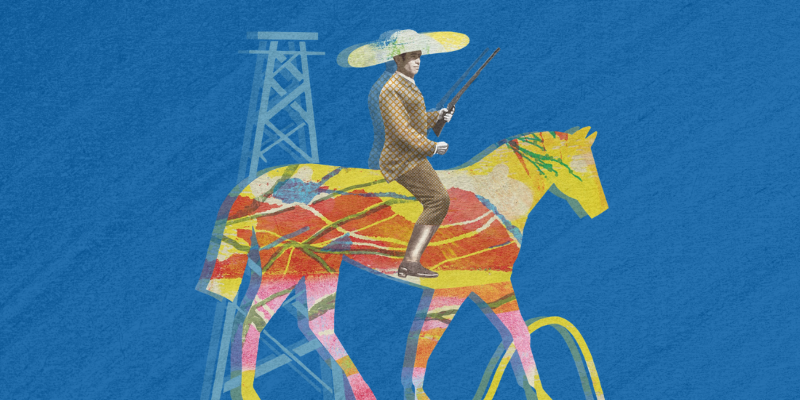
Ten Titles in Translation That Celebrate Ukraine
Nelly Klos Recommends Books, Plays, and Memoirs That Uplift Ukrainian Voices
For decades, Ukraine remained in the shadow of the Russian imperial discourse. Foreign readers had access to only a limited number of translations of Ukrainian literature. Today, fortunately the number of translations is steadily growing, which means that Ukraine finally has the opportunity to be heard—through books that not only counter Russian propaganda but also tell the story of the country’s present life and show that Ukrainian literature existed long before the declaration of independence in 1991.
This list includes both contemporary voices of Ukrainian Literature and classics. Here you will find books that testify to Russia’s full-scale war against Ukraine, star authors of the 1920s who are once again gaining popularity, a cinematic family saga, the first drama-féerie, and a play about memory which “enough to love you, but too little to bring you back.”
These are ten important books that will help you understand Ukraine—and why this country stands and will stand.
*
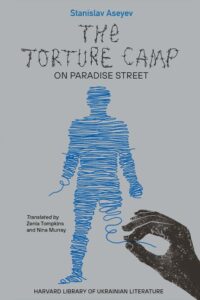
The Torture Camp on Paradise Street, Stanislav Aseyev (translated by Zenia Tompkins and Nina Murray)
Longlisted for the 2024 PEN America Translation Prize. This memoir of Ukrainian journalist and writer Stanislav Aseyev recounts his experience as a prisoner from 2015 to 2017 in a modern-day concentration camp overseen by the Federal Security Bureau of the Russian Federation (FSB) in the Russian-controlled city of Donetsk. Rendered deftly into English, Aseyev’s compelling account offers a critical insight into the operations of Russian forces in the occupied territories of Ukraine.
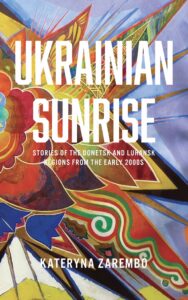
Ukrainian Sunrise: Stories of the Donetsk and Luhansk Regions from the Early 2000s, Kateryna Zarembo (translated by Tetiana Savchynska)
This book offers a nuanced exploration of Donetsk and Luhansk regions prior to the 2014 Russian invasion. Combining rigorous research and captivating narration, Kateryna Zarembo debunks common myths about the region, such as its long-standing gravitation towards Russia and its rejection of everything Ukrainian. This book is an essential read to get to know the Ukrainian East and its people, now forever altered by the Russian invasion.
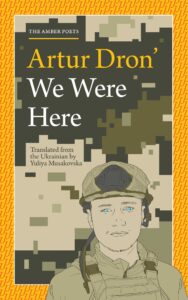
We Were Here, Artur Dron’ (translated by Yulia Musakovska)
The poetry of Ukrainian soldier-poet Artur Dron’ in this collection was written at the front, but they are not about war. They are about people who love more than they fear. Who were here and did not leave. In this language, soldiers remember their loved ones, and children write letters on the pages of their school notebooks. They talk about pain and hope. They say goodbye and love.
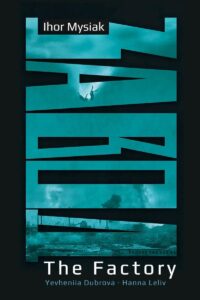
The Factory, Ihor Mysiak (translated by Yevheniia Dubrova and Hanna Leliv)
This novel was published in its original Ukrainian in 2022, dedicated to the author’s friend who was killed by Russia while defending his home. The following spring, Ihor himself was also killed by Russia, and a global community came together to further share his deeply poetic and insightful words. Atmospheric and meditative, Mysiak’s staccato Ukrainian storytelling paints an evocative tale of a motley and rather strange gathering of men who restore a broken-down factory aside an old, forgotten village to build and sell electronic machines assured to cause happiness.
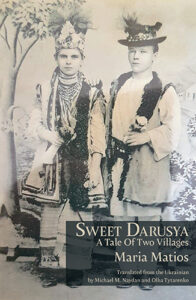
Sweet Darusya: A Tale Of Two Villages, Maria Matios (translated by Michael M. Naydan and Olha Tytarenko)
The novel immerses the reader in the world of a Carpathian village in the 1970s, where the main character Darusya lives, whom the locals consider mute and mentally retarded due to attacks of headaches, although none of them guesses the true reasons for her behavior and defiance. The novel intertwines present-day events with painful memories of the lives of her parents, who tried to protect their love from war, jealousy, and the cruelty of the merciless Soviet government.
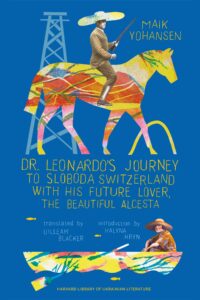
Dr. Leonardo’s Journey to Sloboda Switzerland with his Future Lover, the Beautiful Alcesta, Maik Yohansen (translated by Uilleam Blacker)
The characters are bright, marionette-like caricatures whom the author constructs and moves ostentatiously in full view of the reader, revealing his artistic devices with a sense of absurd, mischievous humor. A novel of exuberance and whim that deconstructs the very principles of writing a novel and strange everyday phenomena, Dr. Leonardo’s Journey marks the high point of Ukrainian modernism right before it was violently cut down by Stalin’s repressions.
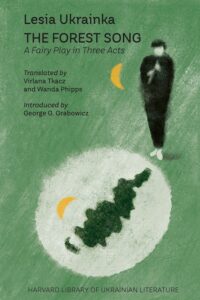
Forest Song: A Fairy Play in Three Acts, Lesia Ukrainka (translated by Virlana Tkacz and Wanda Phipps)
Forest Song represents the crowning achievement of Lesia Ukrainka’s (one of the most well-known Ukrainian writers of early modernism) mature period and is a uniquely powerful poetic text. A play in three acts, it seemingly breaks with her intellectually charged social and cultural themes ranging from feminism and the deconstruction of patriarchy to the workings of colonialism even in antiquity. Forest Song is a testament to the power of love to overcome differences and bring one’s loved ones back from the dead.
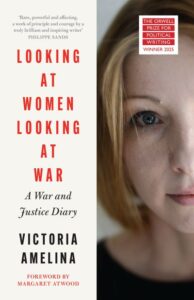
Looking at Women, Looking at War, Victoria Amelina (foreword from Margaret Atwood)
Winner of The Orwell Prize 2025. When Russia invaded Ukraine on February 24, 2022, Victoria Amelina was busy writing a novel, taking part in the country’s literary scene, and parenting her son. Then she became someone new: a war crimes researcher and the chronicler of extraordinary women like herself who joined the resistance. On the evening of June 27th, 2023, Amelina and three international writers stopped for dinner in the embattled Donetsk region. When a Russian cruise missile hit the restaurant, Amelina suffered grievous head injuries, and lost consciousness. She died on July 1st. She left behind an incredible account of the ravages of war and the cost of resistance.
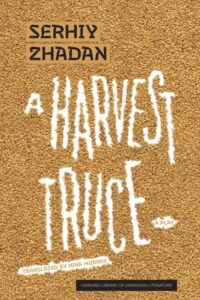
A Harvest Truce, Serhiy Zhadan (translated by Nina Murray)
The events of the play take place in the summer of 2014. The story of one death turns into the story of an entire generation, into the story of relationships between children and parents, into the story of betrayal and mistrust, full of comic words and tragic meanings, which Serhiy Zhadan knows how to combine so perfectly. With echoes of Waiting for Godot, Serhiy Zhadan’s A Harvest Truce stages a tragicomedy in which the commonplace experiences of death, birth, and the cycles of life marked by the practices of growing and harvesting food are rendered futile and farcical in the wake of the indifferent juggernaut of war.
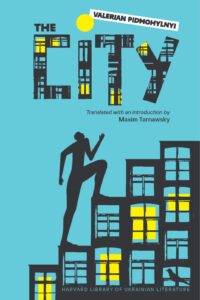
The City, Valerian Pidmohylnyi (translated by Maxim Tarnawsky)
Valerian Pidmohylnyi’s The City was a landmark event in the history of Ukrainian literature. The novel tells the story of Stepan, a young man from the provinces who moves to the capital of Ukraine, Kyiv, and achieves success as a writer through a succession of romantic encounters with women. At its core, the novel is a philosophical search for harmony in a world where our intellectual side expects rational order, whereas the instinctive natural world follows its own principles. The resulting alienation and disorientation reflect the basic principles of existential philosophy, in which Pidmohylnyi is close to his European counterparts of the day.
__________________________________
Lviv BookForum will take place October 2–5 with highlight events available free to view at hayfestival.org/lviv-bookforum. The full program is available here. A special opening event also takes place in London, UK, with writers Tanja Maljartschuk, Hisham Matar and Elif Shafak in conversation with Olesya Khromeychuk—book tickets here.
Nelly Klos
Nelly Klos the program director of Lviv BookForum. Nelly is known as an expert in international cooperation and creative management of cultural initiatives. She has coordinated numerous cultural events, including the organization of literary festivals and intercultural art projects across Europe. Her portfolio includes national campaigns to promote children's reading and innovative multimedia projects using augmented reality, implemented with the support of international cultural institutions.



















